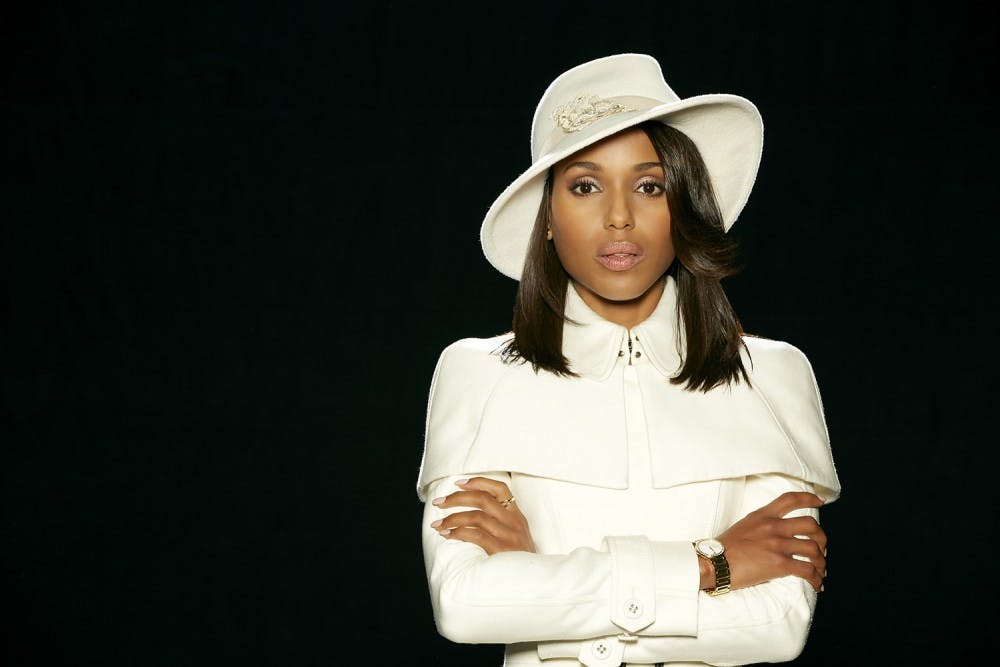When Hattie McDaniel became the first black performer to win an Oscar in 1939, it was a historic and groundbreaking moment. In the ceremony, when McDaniel won the Supporting Actress award for her role in Gone With the Wind, presenter Fay Bainter commented that the award was “opening the doors of [the Academy] and moving back the walls."
Her win did move back walls, but it did so slowly. Today it can still feel like when black narratives are presented in Hollywood, they are relegated to minor plots—and even the most talented black actors and actresses end up in supporting roles. Movies like Get Out stand out as exceptions, since main star Daniel Kaluuya is nominated for Best Actor this year, but it’s hard to forget that for the past several years, we’ve watched phenomenal performers like Lupita Nyong’o and Octavia Spencer shine—but still in smaller roles.
The number of leading black performances is one area where television beat film. While Hollywood has been slow to spotlight black talent, their small screen counterparts have been bringing black narratives to the forefront for years. In her acceptance speech, an emotional McDaniel expressed her hopes that she becomes a “credit to her race.” Over the years, television leads have told complicated stories with complicated characters and refused to be reduced to side characters or “credits.” As we celebrate Black History Month, here are some of our favorite characters who did just that:
Whitley and Dwayne, A Different World
Technically a spinoff of The Cosby Show, A Different World was originally about Denise Huxtable navigating college; when she left after the first season, the show took on a life of its own as it focused in on fellow students Whitley and Dwayne. A Different World gave a voice to the black young adults of the ‘90s. It highlighted the importance, potential, and promise that came with attending an HBCU, and didn’t shy away from topics such as the AIDS crisis and sexual assault on campus, often tackling them before anyone else did.
Kunta Kinte, Roots
If you took a United States history class at any point in high school, your teacher probably owned this miniseries, and might have even pulled it out to screen at some point. If you took the opportunity to fall asleep in class, though, you missed out. Although the original Roots is from 1977, the multi–generational saga of captured slave Kunta Kinte and his descendants is timeless. It was revolutionary when it aired, setting viewing records and winning nine Emmys, and with a cast that includes such stars as LeVar Burton and Maya Angelou, Roots is still worth watching today.
Will Smith (as himself), The Fresh Prince of Bel Air
Sitcoms were undoubtedly the most popular black–led television programs for years, and the ‘90s had many of them: however, one show stands out in cultural memory more than any other. The classic story of a West Philly kid (born and raised) transplanted to California, Fresh Prince launched Will Smith’s career and drew huge audiences of all races. Seldom overtly political, the show engaged with racial issues but was mostly the story of a family’s quirks and differences—and the love that held them together. Simple as it may be, it was clearly a formula for success: just try to find someone who doesn’t know how to rap the theme song.
Olivia Pope, Scandal
If you know television today, you know Shonda Rhimes: she is one of the biggest named showrunners, producers, and creators in the business right now. She has been championing diversity since her days working on Grey’s Anatomy, and she has since created several strong black leads, like Viola Davis as Professor Keating in How To Get Away With Murder; however, Kerry Washington’s Olivia Pope holds a special place in our hearts. On a show with wild and frequently unbelievable twists and turns, her character is the anchor that grounds Scandal in emotional credibility: calm, smart, principled, wine–loving, and wonderfully complex. Olivia is conscious of the constraints of being a black woman in the public eye—as in the scene where she recalls her father teaching her “you have to be twice as good to get half as much”—but no matter what Washington, D.C. throws at her, she manages to come out on top.
Zeke/MC Brooks, The Get Down
Hip hop is both one of the most significant cultural developments of the last few decades, and one of the most criticized and misunderstood ones. Early rap was revolutionary for being unapologetically black, and The Get Down is wonderful, in the same way, for being an unapologetic celebration of the art form. Baz Luhrmann, the director who brought us the glittery world of The Great Gatsby, employs the same talent here to take us back to a vision of the ‘70s Bronx that is nothing short of magical. The Get Down is a show about Zeke, the romantic who dreams of becoming a musician, but it's really about all of the characters who populate his world—and the music that came out of it.

